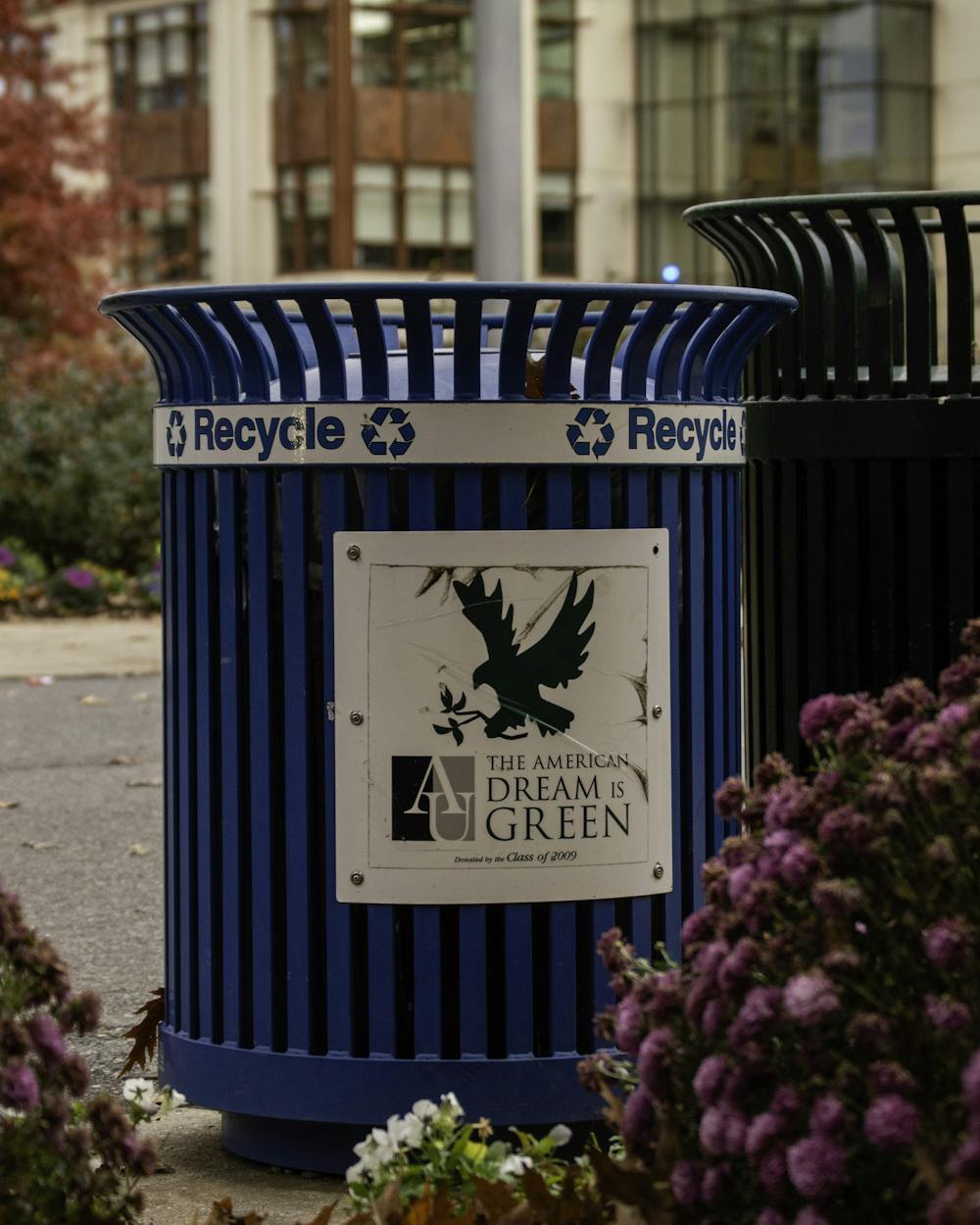American University’s zero waste policy is designed to reduce campus waste and get students involved in sustainability. The Zero Waste Project team, established in 2016, has worked daily to sort recycling and compost on campus alongside the Compost Crew, a student group that sorts waste into compostable and non-compostable items weekly. Both of these groups make sure that on-campus waste is sorted by recyclable and compostable material to reduce the amount of waste that goes to landfills.
Ben Scheiner, a Compost Crew member and Zero Waste Office student intern in Kogod, organized the survey to see what students understand about campus sustainability and whether or not they are invested in it.
Over 530 students, faculty and staff completed the survey, and only 47 percent of respondents said they trust the Zero Waste process.
Manager of the Zero Waste program Tyler Orton said he was surprised at how high the level of distrust is in the University’s processes.
“Students want to know where their recycling goes, where the composting goes,” Orton said. “Their lack of trust is reasonable.”
Orton said this is especially reasonable after incidents when, Orton said, compostable items were just being thrown away to end up in a landfill and not composted at all.
“AU students are pretty motivated about zero waste,” Scheiner said. “Our survey showed that students are pretty knowledgeable about composting and recycling, so now we want to focus our program on trust.”
According to the survey, a majority of respondents said that they do take the time to sort their waste, but they have trouble sorting particular items like packaging, coffee cups and utensils. Survey respondents suggested improved signage throughout campus or scannable QR codes that describe which items should be tossed in which bin to help students more easily sort their waste.
Orton agreed that students are motivated at AU, saying that he doesn’t know of any other campus that has a Zero Waste Club that gets 40 people at their meetings. But “AU has a general … skepticism with students and faculty,” Orton said.
“We are transparent, but we’re not good at advertising it,” Orton said.
The Zero Waste team plans on creating videos that show the process of composting and recycling so that students can begin to trust the system, Scheiner said.
“Our process is unique … We manage waste internally, and that makes it trustworthy,” Orton said.
He explained in an email that waste from trash, recycling and compost bins is collected by the University’s own recycling or housekeeping staff and then transferred to the right processing facilities by AU’s own truck.
When students and staff understand the program and the process better, the campus will be more sustainable, Scheiner said.
“If they’re aware of what they’re throwing away [and] what it can do to the environment, their support and trust will help us,” Scheiner said.
The survey also said that nearly 90 percent of students carry around reusable water bottles. Orton optimistically sees this as an “entry point” for sustainability. When students understand the basics of composting and adopt sustainable habits, the Zero Waste program can focus more on communicating with them and gaining their trust, Orton said.
Campus sustainability dynamics have also been changing over the past few months with the introduction of the new dining vendor, Chartwells. Composting is better now than it was with Aramark, Scheiner said.
With Chartwells, AU is composting 800 pounds a day, but with Aramark, the campus composted only 1,000 pounds in a week, Scheiner said.
In survey responses, students suggested more trash bins outside to help with controlling campus waste and voiced the desire for more compostable food containers to be used at dining locations.
Luckily, these suggestions are feasible, and AU is willing to work on adopting them, Orton said. Some of them are already being implemented and researched, like more readable signs that are now placed in MGC above waste bins.
“Students know [the Zero Waste program] can influence decisions,” Scheiner said. “Their voice goes a really long way.”
This article originally appeared in The Eagle's December 2019 print edition.





